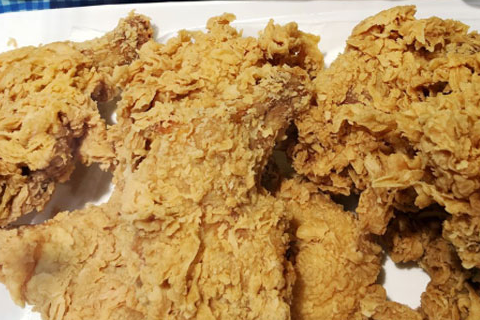Gout is a relatively serious disease among middle-aged and elderly individuals, and once afflicted, one needs to pay attention to many things. Especially in terms of diet, there are certain foods that cannot be eaten, but many patients do not pay attention, leading to an increase in uric acid, which affects their health. It is evident that in the process of preventing and treating gout, foods that exacerbate the condition must be limited, and it is best to avoid them altogether. So, what foods should gout patients avoid? Let’s take a look.
The onset of gout is mainly related to the disorder of purine metabolism, so high-purine foods should be limited. Foods such as animal organs, seafood, and rich broths fall into the category of high-purine foods and should be consumed less. Particularly with seafood, many coastal cities consume it almost daily and enjoy it with almost every meal, and a significant contributing factor is beer. Beer itself contains a considerable amount of purines and can affect uric acid metabolism, leading to aggravated gout.
Foods high in sugar and fat should also be limited, as they can lead to increased uric acid levels—high uric acid is a typical symptom for gout patients. Therefore, foods that can cause high uric acid should be consumed minimally. Foods high in fat and sugar include desserts, high-sugar fruits, fried foods, etc., which gout patients should avoid, making sure to restrain their cravings. In daily diet, using less oil and salt while opting for a light diet can help stabilize uric acid levels and relieve the suffering of the patients.
Finally, spinach should be consumed sparingly, as well as alcohol and alcoholic beverages, as these also hinder uric acid metabolism, which gout patients should limit. Spinach contains oxalic acid, which can affect uric acid metabolism and lead to elevated levels in the body. The same goes for alcohol; while increased alcohol consumption doesn’t generate more uric acid, it does affect its excretion. Therefore, patients should also pay attention to minimizing their intake of spinach and alcoholic drinks.
In summary, the restricted food categories for gout patients mainly consist of these three types. It is very helpful for lowering uric acid when one pays close attention in daily life. At the same time, for gout patients, consuming more of the following foods can alleviate gout and prevent its occurrence.
First, increasing water intake is essential; drinking water can help promote urination. The daily water intake should be maintained at around 2500 milliliters to meet the body’s needs while effectively promoting uric acid metabolism. Additionally, drinking more water can help flush out accumulated stones in the joints, aiding in expulsion from the body. Therefore, whether for preventing or treating gout, drinking plenty of water is necessary.
Secondly, foods rich in carbohydrates should be the primary diet. High-carbohydrate foods do not lead to an increase in uric acid levels and help stabilize them. Moreover, high-carbohydrate foods can ensure adequate caloric supply to meet the body’s needs, effectively avoiding a further exacerbation of gout symptoms. Some good choices include millet, oats, job’s tears, sorghum, brown rice, glutinous rice, corn, potatoes, yams, taro, and sweet potatoes.
Non-starchy vegetables should be consumed more frequently, as they benefit gout patients. Vegetables can be categorized into starchy and non-starchy types; the former can affect the condition of gout patients, while the latter is more suitable for them. Non-starchy vegetables such as lettuce, winter melon, bok choy, lettuce, napa cabbage, cucumber, cabbage, and broccoli are great options to consider.


